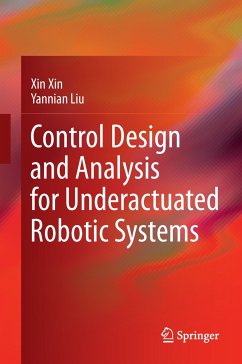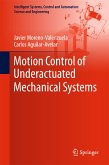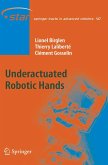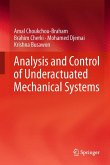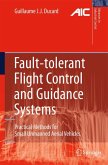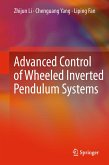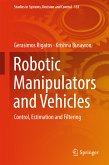The last two decades have witnessed considerable progress in the study of underactuated robotic systems (URSs). Control Design and Analysis for Underactuated Robotic Systems presents a unified treatment of control design and analysis for a class of URSs, which include systems with multiple-degree-of-freedom and/or with underactuation degree two. It presents novel notions, features, design techniques, and strictly global motion analysis results for these systems. These new materials are shown to be vital in studying the control design and stability analysis of URSs.
Control Design and Analysis for Underactuated Robotic Systems includes the modelling, control design, and analysis presented in a systematic way particularly for the following examples:
l directly and remotely driven Acrobots
l Pendubot
l rotational pendulum
l counter-weighted Acrobot
2-link underactuated robot with flexible elbow joint
l variable-length pendulum
l 3-link gymnastic robot with passive first joint
l n-link planar robot with passive first joint
l n-link planar robot with passive single joint
double, or two parallel pendulums on a cart
l 3-link planar robots with underactuation degree two
2-link free flying robot
The theoretical developments are validated by experimental results for the remotely driven Acrobot and the rotational pendulum.
Control Design and Analysis for Underactuated Robotic Systems is intended for advanced undergraduate and graduate students, and researchers in the area of control systems, mechanical and robotics systems, nonlinear systems and oscillation. This text will not only enable the reader to gain a better understanding of the power and fundamental limitations of linear and nonlinear control theory for the control design and analysis for these URSs, but also inspire the reader to address the challenges of more complex URSs.
Control Design and Analysis for Underactuated Robotic Systems includes the modelling, control design, and analysis presented in a systematic way particularly for the following examples:
l directly and remotely driven Acrobots
l Pendubot
l rotational pendulum
l counter-weighted Acrobot
2-link underactuated robot with flexible elbow joint
l variable-length pendulum
l 3-link gymnastic robot with passive first joint
l n-link planar robot with passive first joint
l n-link planar robot with passive single joint
double, or two parallel pendulums on a cart
l 3-link planar robots with underactuation degree two
2-link free flying robot
The theoretical developments are validated by experimental results for the remotely driven Acrobot and the rotational pendulum.
Control Design and Analysis for Underactuated Robotic Systems is intended for advanced undergraduate and graduate students, and researchers in the area of control systems, mechanical and robotics systems, nonlinear systems and oscillation. This text will not only enable the reader to gain a better understanding of the power and fundamental limitations of linear and nonlinear control theory for the control design and analysis for these URSs, but also inspire the reader to address the challenges of more complex URSs.
Dieser Download kann aus rechtlichen Gründen nur mit Rechnungsadresse in A, B, BG, CY, CZ, D, DK, EW, E, FIN, F, GR, HR, H, IRL, I, LT, L, LR, M, NL, PL, P, R, S, SLO, SK ausgeliefert werden.
"The book will be convenient for the reader who aims at analyzing the behavior of underactuated systems and developing new numerical and analytical control tools for these systems. The book is intended for undergraduate and graduate students, and researchers in the area of control systems, mechanical and robotic systems, nonlinear systems and oscillation." (Clementina D. Mladenova, Mathematical Reviews, April, 2017)

